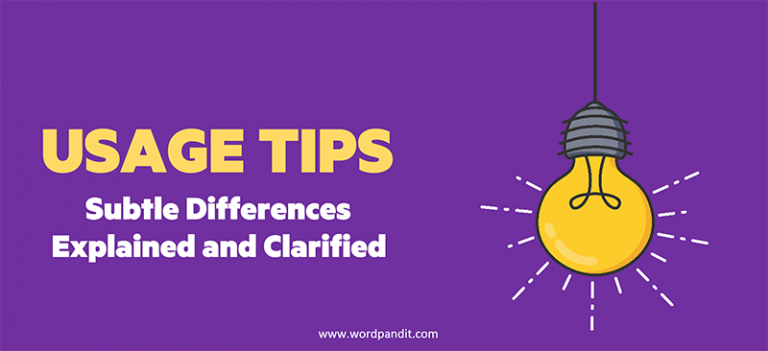Discreet vs. Discrete: Mastering the Difference ✨
Welcome to another edition of Clarifying Confusing Word Pairs! Today, we’re diving into two words that sound almost identical but carry entirely different meanings: discreet and discrete. They may look alike, but mixing them up can change your sentence entirely. Imagine if your friend confided in you about a secret mission, and instead of being discreet 🤫, you ended up explaining how the mission was discrete! 🎯 Let’s make sure you don’t fall into this trap.
Discreet 👀
Definition: To be careful or prudent, especially to avoid causing offense or attracting attention. Think of it as being secretive in a sensible way.
Pronunciation: [dih-skreet] 🔊
Etymology: This word has its origins in the Latin word “discretus,” meaning “distinguished, prudent.” It shares the same root as “discern,” which hints at someone using good judgment. The idea behind discreet is having the ability to distinguish when it is appropriate to act in a way that avoids unnecessary attention. It’s all about being cautious in both speech and actions, making sure you don’t reveal too much or cause embarrassment.
Usage Examples:
- “She kept their conversation discreet, ensuring nobody overheard.” 🤐 It takes a lot of skill to stay calm and keep things confidential, especially when the topic is sensitive.
- “The waiter gave a discreet nod, acknowledging their special request.” 👌 This kind of subtle acknowledgment shows professionalism and tact.
Synonyms: cautious, circumspect, prudent.
Antonyms: indiscreet, careless, reckless.
A discreet person knows when to speak and when to stay quiet, which is an invaluable skill, particularly in situations where privacy is essential.
Discrete 🎲
Definition: Separate or distinct; used to describe individual parts or pieces that are distinct from each other. When we talk about something being discrete, we mean that it stands apart from other items or entities, with clear boundaries that set it apart.
Pronunciation: [dih-skreet] (yes, it’s pronounced the same!) 🔊
Etymology: This word also stems from the Latin “discretus,” but in a different sense. It refers to something “separated” or “distinct.” The idea here is that things are broken down into parts, each existing independently from the others.
Usage Examples:
- “The artist used discrete colors to differentiate each element of the painting.” 🎨 Each color was chosen deliberately to make every part stand out.
- “The company operates in several discrete sectors, each with its unique management.” 🏢 This means that the company’s different areas of operation function independently, without overlap.
Synonyms: separate, distinct, individual.
Antonyms: continuous, connected, integrated.
Think of discrete as something that is clearly defined and separate from others—it helps in understanding different components without mixing them up.
How to Remember the Difference
Here’s a little trick: think of discreet as having two “e”s close together – it’s all about keeping things “together” and on the down low. Meanwhile, discrete has the “t” separating the “e”s, symbolizing something distinct or separate. 🤓💡 Another way to think of it is that discreet people keep secrets, and discrete things are separate entities. This visual can really help keep things straight!
To remember the pronunciation, note that both words are pronounced the same way. The difference lies entirely in their meanings and spelling, so while they may sound identical, the context in which they are used is crucial to their correct application.
Comparing the Two
To really make sure you’ve got it, let’s use them in a single context:
- “She was discreet about their discrete project components.” 📝 This means she was careful and prudent in keeping information private, while the project itself was made up of distinct and separate components.
Another comparison:
- “The security team maintained a discreet presence, while monitoring discrete areas of the venue.” In this case, the team stayed out of sight (being careful not to attract attention), and they focused on different, distinct sections of the venue.
Mnemonic Device
To help you keep these two words straight, remember:
- Discreet = secret. 🤐 It’s all about keeping things private and being prudent.
- Discrete = separate. ➗ Think of discrete parts as individual building blocks that don’t blend together.
The rhyme should make it easier for you to recall which one is which, but also think of the meanings as separate versus careful—this distinction will make it stick.
Related Word Pairs
If you’ve enjoyed dissecting discreet and discrete, you might also be interested in clarifying other word pairs like affect vs. effect or stationary vs. stationery. These pairs often trip people up because they sound similar or are spelled almost the same, yet their meanings are quite different. Stick around, and let’s keep unraveling the quirks of English together! 📚✨
Another word pair you might like to explore is elicit vs. illicit. These two words are also often mixed up, but once you understand their distinct meanings, you’ll find it easier to use them confidently.
Test Your Knowledge: Disinterested vs. Uninterested Quiz
1. The jury must remain ___ during the trial. ⚖️
2. She was totally ___ in the topic, so she decided to skip the lecture. 📚
3. Disinterested means lacking interest in something. ❓
4. Which of the following is a synonym of “Disinterested”? 🤔
5. The referee should be ___ to ensure fairness. 🏅
6. Which of the following is an example of being disinterested? 🧐
7. The judge was supposed to be ___, but he seemed ___ in the proceedings due to fatigue. 😴
8. Which word is derived from Latin meaning ‘apart from having a stake’? 📜
9. The word ‘disinterested’ can mean uninterested. ⚠️
10. The arbitrator remained ___ throughout the discussion but noticed the participants were largely ___. 🤝













